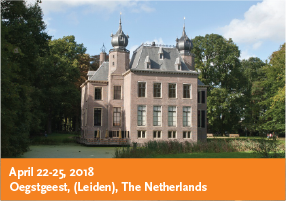|
|
Confirmed Speakers
Peptide Pharmacokinetics and Delivery: Challenges and (some) Solutions
 | Dr Christopher COXON
(LIVERPOOL UNIVERSITY, Liverpool, United Kingdom)
Read more
Dr Coxon is a synthetic organic and biological chemist with an interest in the design and synthesis of chemical tools to study the function and role of proteins in health and disease. Current research themes in his group include a) fluorinated peptides as probes for i) enzyme mechanisms / role in disease, ii) as potential therapeutics e.g. vaccines; b) conformationally-constrained peptides for migraine-treatment. He completed his PhD (2010) sponsored through the Cancer Research UK Medicinal Chemistry Training Programme (Northern Institute for Cancer Research, Newcastle University); before undertaking PDRA positions at Durham University (2010 - 14) in chemical biology and peptide chemistry with Prof Patrick Steel and Dr Steven Cobb, respectively. He began his independent career in 2014, joining Liverpool John Moores University. Close window |
Phage Display as the Tool for Biotechnology and Medicine
 | Dr Krystyna DABROWSKA
(INSTITUTE OF IMMUNOLOGY AND EXPERIMENTAL THERAPY, POLISH ACADEMY OF SCIENCES, Wroclaw, Poland) |
Why Peptides as Therapeutics
 | Prof. Linda HAUGAARD-KEDSTRÖM
(UNIVERSITY OF COPENHAGEN, Copenhagen, Denmark)
Read more
Linda Haugaard-Kedström received her PhD in organic chemistry 2011 from the Linnaeus University, Sweden, working on structure and function of relaxin peptide analogues. Following post-doctoral research at University of Queensland, Australia, on peptide toxins from cone snails, Linda moved back to Europe to take on a position at University of Copenhagen, Denmark in 2013. In 2016 Linda was appointed Associated Professor. Her current research is focused on developing peptide inhibitors targeting intracellular cancer targets. Close window |
Discovery and Development of Macrocyclic Peptide Drugs
 | Dr Daniel OBRECHT
(POLYPHOR, Allschwil, Switzerland)
Read more
After a PhD in organic chemistry obtained from the University of Zurich (1983), D. Obrecht spent two years of postdoctoral studies working in Prof. R. E. Ireland’s group at the California Institute of Technology on the total synthesis of avermectin. He then joined the Central Research Laboratories of F. Hoffmann-La Roche in Basle (1985), where he worked on several drug discovery projects. In 1989 he started a project with the aim to find small molecule peptidomimetics of exposed protein epitopes. In 1993 he was awarded Roche Lecturer, and in 1994 he headed the combinatorial chemistry project at Roche Basle. End of 1996 he co-founded Polyphor with his brother Dr. Jean-Pierre Obrecht. The main expertises of D. Obrecht are synthetic organic chemistry with particular emphasis on macrocycles, medicinal chemistry and drug discovery. He is currently CSO at Polyphor and author and co-author of 70 publications and 35 patents, including key patents on the Protein Epitope Mimetics (PEM) Technology and products, such as POL6014, POL7080, and POL6326. Close window |
Nature as an Inexhaustible Source of New Leads
 | Dr Serge PLAZA
(TOULOUSE UNIVERSITY, CASTANET-TOLOSAN , France)
Read more
Serge Plaza is a CNRS Researcher working at the University of Toulouse III since 2001. He is currently co-heading a young group entitled « peptides and small RNAs » with Jean-Philippe Combier. S.P. is a specialist of molecular mechanisms of Drosophila Development. He has been working since several years on the Gene Regulatory Network of epidermal differentiation leading to the discovery of atypical role of small peptides in Drosophila. S.P. has obtained a Master degree in Biochemistry and Molecular Biology of life sciences at the University of Lille in 1992. He worked first on mechanisms underlying Oncogenes function for seveval years at the Pasteur Institute of Lille in the laboratory of D.Stehelin. He moved to the University of Basel in 1998 to start to work on Drosophila in the laboratory of Walter Gehring. He moved three years later in Toulouse. Close window |
|
Organised by

Media Partners


|









